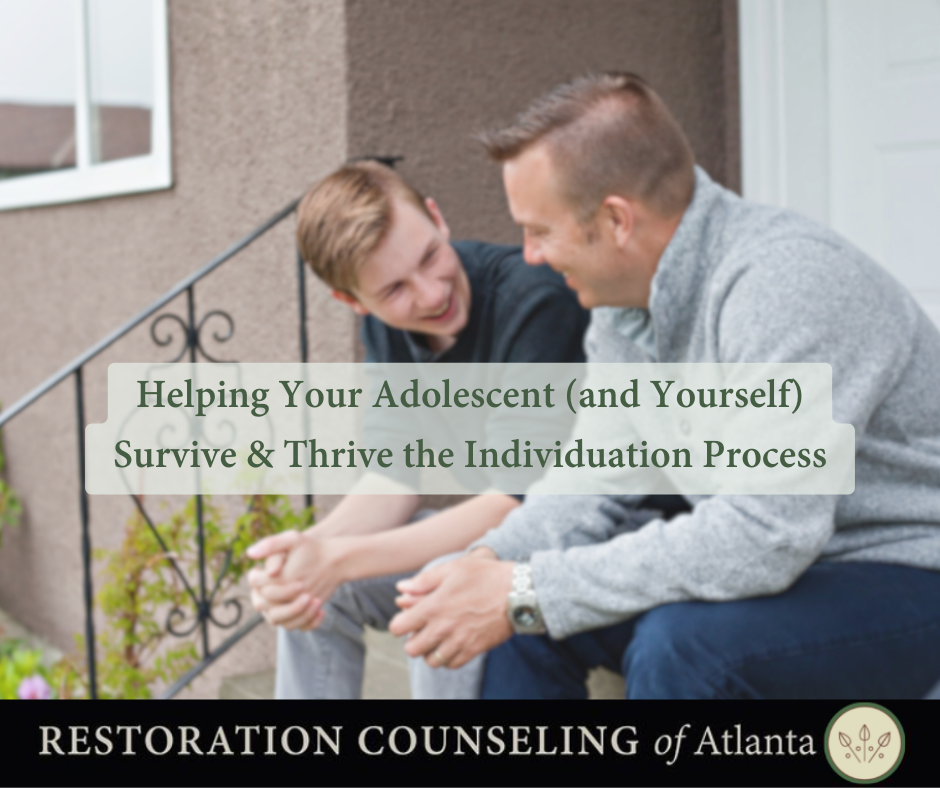My firstborn just turned 11 and is entering middle school in a few weeks. I’m still confused about how we got here so fast; it seems like we were starting elementary school just yesterday! Although my whole career has been built around working with adolescents and the stages of development, it hits a little differently when I’m facing it firsthand as a parent. And I find myself full of all different feelings from the feelings wheel!
After almost two decades of working with adolescents, I regularly find that adults and parents have a unique reaction when they hear the word ‘teenager.’ It may be because our culture encourages parents to fear the teenage years. Sure, there are increased hormones and risky behavior (remember: their brain is still not fully developed until the mid-late 20s!). There are challenging decisions about academics, friends, sexuality, drugs/alcohol, and who they want to become. Add in peer pressure, anxiety, comparison, and social media challenges; it’s no wonder that parents often fear these years. But there is hope that you can help you and your teen survive and thrive. Read along for encouragement, tips, and guidance to shift your perspective from fear to opportunity!
Stages of Adolescence: What’s Normal?
As a parent, you may start to wonder what is normal during these years. Let’s first take a closer look at the adolescent years and what normal development looks like. According to Psychology Today, “adolescence is the transitional stage from childhood to adulthood that occurs between 13-19. The physical and psychological changes that take place in adolescence often start earlier, during the preteen or ‘tween’ years: between ages 9-12.” During this transitional period, normal development for adolescents includes seeking independence, autonomy, individuation and being self-focused. While this is a natural process, it can often seem problematic from a parent’s perspective, but it’s also a sign of the individuation process.
Why is Individuation Important?
Individuation is a necessary step in childhood development. Its purpose is for a child to emotionally and socially transform into a young adult. During this time, adolescents break from their childhood attachment to acquire freedom and responsibility. They develop independence and differentiate themselves to become their own person. This can be hard for parents to observe, but your child becoming an independent and contributing individual in society should serve as encouragement that you are doing your job well.
If an adolescent fails to individuate, they may become an emerging adult who gets stuck or is dependent upon their parents for support. This results in failing to launch. The alternative to failure to launch is to realize that this natural stage of development requires experimenting with new relationships and activities while gaining space from their parents. If we have built a solid foundation in our relationship with our children, we will allow them to grow independently. During that time, we trust that they will still turn to us for guidance.
Biblical Perspective on this Season
Rather than face the teen years with fear, dread, and cynicism, author Paul David Tripp provides an alternative. In his book Age of Opportunity, he presents the idea that parenting adolescence is an opportunity for ministry. Tripp states, “Rather than years of undirected and unproductive struggle, these are the years of unprecedented opportunity. They are the golden age of parenting, when you begin to reap all the seeds you have sown in your child’s life, when you help your teenager internalize truth and prepare him or her for a productive, God-honoring life as an adult.”
We can also take comfort in the following scriptures:
Now to Him who is able to do immeasurably more than all we ask or imagine, according to His power that is at work within us, to Him be the glory in the church and in Christ Jesus throughout all generations, forever and ever. Amen. Ephesians 3:20-21
As parents, we can rest assured that God is at work in us, as well as the work He continues to do in and through our children.
I pray that out of his glorious riches he may strengthen you with power through his Spirit in your inner being, so that Christ may dwell in your hearts through faith. And I pray that you, being rooted and established in love, may have power, together with all the Lord’s holy people, to grasp how wide and long and high and deep is the love of Christ, and to know this love that surpasses knowledge—that you may be filled to the measure of all the fullness of God. Ephesians 3:16-19
A prayer for us to pray over our families during this stage of development. May we all be rooted and established in Christ’s love as we parent and minister to our adolescents.
Thriving During Individuation
Here are some tips to help your relationship with your teen thrive during the individuation stage:
- Focus on these 4 key verbs: Listening, Respecting, Understanding, and Agreement. These verbs are not mutually inclusive of each other. In healthy communication, active listening and respect are essential. While you may not always understand someone else’s point of view or even agree, you can always listen and be respectful. This teaches teens that they can have a different opinion or perspective from ours and we don’t have to be threatened by it. Often, parents can feel like their authority or personal beliefs are being challenged or threatened. Parents can build connection with their teens by listening to and respecting them, even when you don’t see eye-to-eye on a topic. Dr. Stephen R. Covey, author of the best-selling ‘The 7 Habits of Highly Effective People’ states, “If I were to summarize in one sentence, the single most important principle I have learned in the field of interpersonal relations, it would be this: Seek first to understand, then to be understood.”
- Empathize with Your Teen. In addition to listening to and respecting your teen, practice empathy. Again, you may not understand or even agree with them, but you can empathize with how they may be feeling. Adolescents are looking for validation, and we can be their safety by providing empathy.
- Provide Support. In a culture that is quick to tear them down, find ways each day to build up your teen. Be that encouragement and support when it feels that their world is shaky.
- For more tips, check out my blog post on “Connecting with Your Teen.”
- If you find yourself in a hard season, I’d love to help you build connection and explore ways for your family to thrive together. Reach out for a free consultation at (678) 534-3824 ext. 116 or Heidi@restorationcounselingatl.com.

Written by Heidi Sawyer, MS, LPC
Roswell Location
heidi@restorationcounselingatl.com, 678.534.3824, ext 116
Heidi works with adolescents and adults with life planning issues, anxiety, depression, relationship challenges, spiritual issues, grief, life transitions, goal setting, and self-confidence. She focuses on helping her clients gain insight to their thought patterns, behaviors, and feelings using the lens of Cognitive Behavioral Theory combined with psychoeducation. Heidi also provides premarital counseling using the Prepare/Enrich program.

